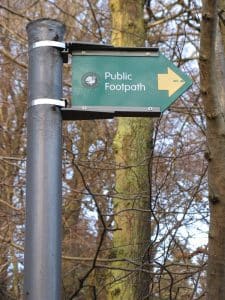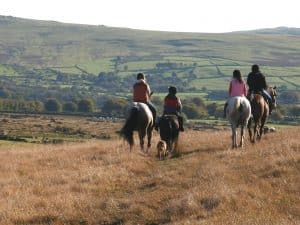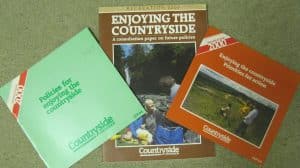Support us from £3/month
We deal with almost 1000 cases a year assisting communities, groups and individuals in protecting their local spaces and paths in all parts of England and Wales. Can you help us by joining as a member?
Thirty years ago (3 September 1987) we were present at the launch of the Countryside Commission’s far-reaching policies and priorities for enjoying the countryside, writes our general secretary, Kate Ashbrook.
Top priority was to have the entire rights-of-way network ‘legally defined, maintained and available for use before the end of the [last] century’ with up-to-date definitive maps. The commission recognised that ‘the national system of 120,000 miles of rights of way is the single most important means of access to and enjoyment of the countryside.’

Bucks footpath sign
Of course the year-2000 target was not achieved, but the commission and its successor the Countryside Agency put money and resources into local authorities and voluntary organisations to work on paths. The condition of the network improved.
The agencies themselves had many staff working on paths and access; they advised, trained and chivvied. They undertook experiments with schemes like the Parish Paths Partnership in which they funded and encouraged parish councils to get involved in path maintenance.
The rights-of-way network is as important now as ever before—yet Natural England (NE), the Countryside Agency’s successor, appears to have fewer than two full-time staff working on local paths.
It is timely that a House of Lords Select Committee is examining the Natural Environment and Rural Communities Act 2006. This set up NE by combining English Nature, the Countryside Agency and part of the Department for Environment, Food and Rural Affairs (Defra).
We told the committee (here) that NE is doing an excellent job in creating the coastal route and adjoining access land around England. But, in our experience, NE’s statutory purpose to promote access and open-air recreation is being sidelined in favour of its regulatory conservation and biodiversity functions. All field staff should be trained in public access for, despite the intention, wildlife and access skills have not been integrated.
NE is being subsumed into Defra. It no longer issues press releases nor has its own website. The arm’s-length advisor is becoming a government mouthpiece.
Post-Brexit
We need NE to lead the charge for post-Brexit funding for public recreation as well as wildlife habitats; there is great potential here to create new paths and access opportunities.
And as local authorities continue to slash funding on rights of way, and the 2026 definitive-map cut-off looms closer, we need NE to champion our public paths, with adequate resources, an independent voice, and the willingness to innovate. If it allows itself to be sucked into government it will disappear into oblivion.

